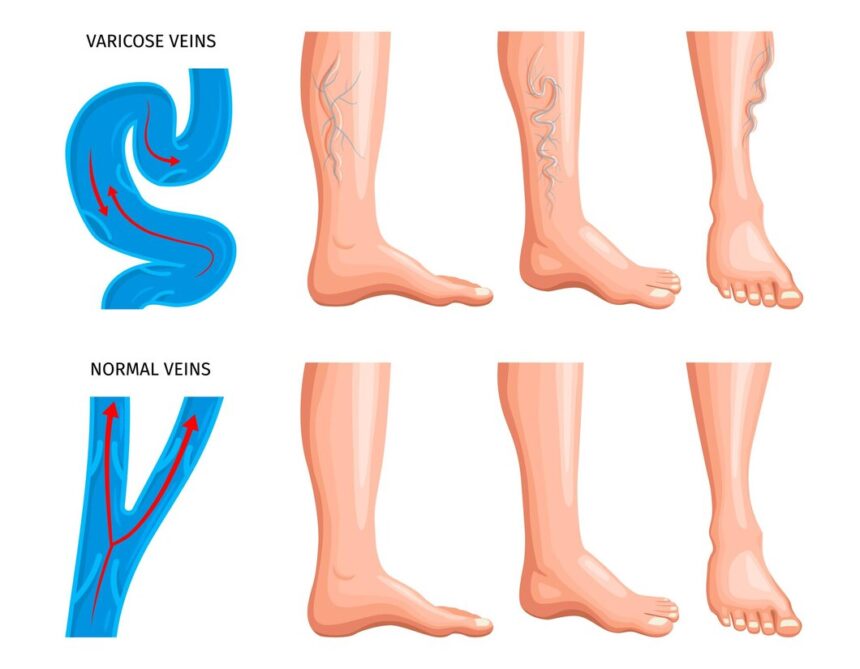Varicose veins, enlarged and twisted veins that often appear on the legs, can be a source of discomfort and concern for many individuals. While they are generally not a severe medical condition, managing varicose veins can improve both the physical symptoms and overall quality of life. In this article, we’ll explore 10 effective ways to manage varicose veins and alleviate associated discomfort.
1. Regular Exercise:
Engaging in regular physical activity, such as walking, swimming, or cycling, promotes healthy blood circulation. Exercise helps improve muscle tone and encourages blood flow, reducing the likelihood of blood pooling in the veins and contributing to varicose veins.
2. Elevate Your Legs:
Elevating your legs, especially after prolonged periods of sitting or standing, assists in reducing the pressure on the veins. Prop your legs up above heart level whenever possible to encourage better blood flow back to the heart.
3. Compression Stockings:
Wearing compression stockings applies gentle pressure to the legs, helping to support vein function and reduce swelling. These stockings come in various levels of compression, so it’s advisable to consult with a healthcare professional to determine the most suitable option.
4. Healthy Diet:
Maintaining a well-balanced diet rich in fiber and low in salt can contribute to overall cardiovascular health. A diet that supports heart health indirectly benefits vein function and can aid in managing varicose veins.
5. Weight Management:
Maintaining a healthy weight reduces the pressure on the veins, particularly in the lower extremities. Losing excess weight through a combination of a balanced diet and regular exercise can alleviate stress on the veins and improve circulation.
6. Hydration:
Adequate hydration supports blood circulation and helps prevent constipation, a condition that can contribute to varicose veins. Drinking enough water throughout the day promotes overall vascular health.
7. Avoid Prolonged Sitting or Standing:
Long periods of sitting or standing can strain the veins and contribute to the development or worsening of varicose veins. Take breaks to move around, stretch, and change positions regularly.
8. Natural Supplements:
Certain natural supplements, such as horse chestnut extract and grape seed extract, are believed to have positive effects on vein health. Consult with a healthcare professional before incorporating supplements into your routine.
9. Topical Treatments:
Topical creams or ointments containing ingredients like vitamin K, aloe vera, or horse chestnut may provide relief from symptoms associated with varicose veins. Always consult with a healthcare professional before using any topical treatments.
10. Medical Interventions:
For more severe cases of varicose veins, medical interventions may be necessary. Procedures such as sclerotherapy, laser therapy, or vein stripping are options that healthcare professionals may recommend based on the individual’s condition.
While varicose veins are a common occurrence, proactive management strategies can significantly alleviate symptoms and improve overall vascular health. Incorporating lifestyle changes, maintaining a healthy weight, and considering medical interventions when necessary are key components of effective varicose vein management. Always consult with a healthcare professional to determine the most suitable approach for your individual situation. By adopting these strategies, individuals can step more lightly through life, promoting vein health and overall well-being.










